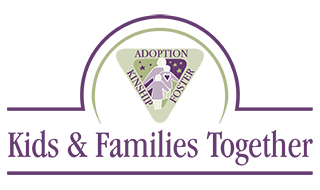Having Faith May 2016
Dear Faith,
My adopted daughter is 13, she came to us when she was 4 with challenging behaviors due to neglect and abuse within her early life. I have used services at K&FT, and I honestly do believe in the importance of being a therapeutic caregiver. I am educated about trauma and neglect and I even see myself as a kind and empathic person much of the time. Although I have had times when life seemed to be better and improving, lately; her behaviors have left me feeling empty and depleted, and on some days, downright hopeless! My child is being defiant and aggressive, and I feel angry on most days and I find myself yelling at her a great deal of the time. Please help me!
Tired of being Angry in Moorpark
Thirteen year olds in general are often challenging for parents, even when their child(ren) did not have a difficult beginning in life. For a child with an early history of trauma, the teen years can be especially rocky and more intense than for the average teen. At 13, identity issues are intensifying, which can increase loss and grief issues especially if your child has no contact with any birth family members. Perhaps, your daughter is in a different emotional place now that she is a teen, and needs time in a safe place to make sense of the trauma that happened in her early life in a way that she was too young or unwilling to do at earlier stage of her life. Although I don’t know exactly what is going on with your child, I do know that her behaviors are showing you that life is very difficult for her right now.
Parenting a child day in and day out who is defiant and aggressive can easily bring out internal emotions of anger within a parent. Good for you for being honest about how you are feeling internally! You mentioned feeling angry on most days which is often a sign that something unfinished from your own childhood is being activated by your child’s current behaviors. At K&FT, we talk about how important it is for a caregiver to look at their own attachment history. In other words, your child is activating an occurrence of unresolved trauma within you that has been buried for a long time and needs to be explored and understood for you to be able to respond to your child in a calmer and less angry way. The more you respond outwardly with anger to your child, the more her fear response is activated, the more her challenging behaviors increase. While it can feel as if your child is intentionally pressing your “buttons” it is a matter of the trauma surfacing within the household when anger is the main interaction between a caregiver and a child.
Frequent anger is a symptom of your own “unfinished business” resurfacing. Your anger serves to protect you to avoid the activation of your own painful childhood memories. In a safe environment, I would encourage you to explore painful parts of your childhood and make sense of your history where you felt afraid or misunderstood and no one was there to help you to feel safe. If you can take time to do this as an adult, it will help to shift you out of a blame based angry posture with your daughter.
When feeling angry and hostile, recognize that your child needs you to understand that you are not a victim but rather that both of you are experiencing raw and painful emotions and fear.
Take ownership of your internal reactions and open yourself up to the wounds inside of you that are triggering your feelings. Get the emotional help that you deserve to heal your past trauma and then you can be fully present to help your daughter to heal the trauma that is being activated in her at this time of her life.
 Kids and Families Together
Kids and Families Together